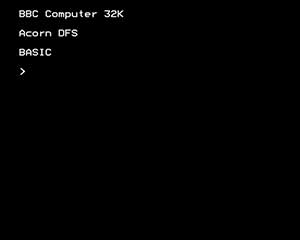A couple of weeks ago I got an email that so annoyed me, I wanted to reply instantaneously. But instead I calmly made lunch, watched an episode of How I Met Your Mother – and then exploded.
It was going so well until the end there, wasn't it? I sounded so calm and professional. Once in a very long while, though, it is fun to make the ground shake – and that's not what I want to talk to you about. It's that 45 minute break I took before replying, that's what's key, that's what you and I need to talk through.
Number one thing: just because someone has emailed you, that doesn't mean you have to reply at all, let alone that you have to reply right away.
I'm a scriptwriter and the analogy I leap to is when you read a script that has a character asking a question. In a bad, tedious script, the next character will always answer it. In good scripts, they won't. For at least three reasons, the greatest being that it is extremely boring. Then there is also the fact that we don't tend to talk like that in real life. And there's also that often the answer is a chore to get by because you've done all the work with the question.
Follow. Here's a bad line of dialogue:
DAD: Do you really think I'm going to keep being a taxi for you? That I'm going to pick you up at 6pm, drive you to this “Sally's” place and wait outside until 1am?
You know that the next line belongs to his son. You know that this happens a lot, you know that his son uses the Dad Taxi all the time. You know the father doesn't like Sally. And you even know what time the next scene is going to start and end. It's not that bad a line, since it gives you all of that attitude along with all of those facts, but it is a question that does not need an answer. In real life, the kid would sulk. In scripts, bad writers automatically write him an answer and that answer will be rubbish. It will be an answer because of course he must reply with one. It won't have any value, it will just be a delay before the next thing happens.
Just let me stay on scriptwriting dialogue for a moment. This is an aside, I know, but even in an example, I want to be clear that there is a difference between an answer and a response.
This is how that exchange would go in a bad script:
DAD: Do you really think I'm going to keep being a taxi for you? That I'm going to pick you up at 6pm, drive you to this “Sally's” place and wait outside until 1am?
SON: But you promised you would! I've told Sally I'm coming and everything.
And this is it in a better one:
DAD: Do you really think I'm going to keep being a taxi for you? That I'm going to pick you up at 6pm, drive you to this “Sally's” place and wait outside until 1am?
SON: I can go over to mom's, she'll drive me.
It's a response and it also tells us that the mother and father are divorced.
Anyway.
Back to the point about replying and responding instantaneously. We do think we have to, we feel bad if we don't. It's as if it's a phone call to us, we feel the pressure to reply, the pressure that the other person is waiting. And they are.
But still: train yourself to not automatically reply to emails.
I'm not saying be rude, I'm saying avoid kneejerk reactions by avoiding replying. Maybe just for a short while, maybe forever.
A few days ago, a friend asked advice on a technical thing and I didn't know the answer. I was replying instantly to say this when the phone rang and I had to go off doing something. I felt bad leaving her hanging, leaving her thinking that I might be able to help. About an hour later, I got to reply to her – and in the hour I'd thought of something. Completely unintentionally, completely without planning or even conscious thought, something had whirred away in my noggin and popped out when I was ready to reply. It didn't solve her problem, it didn't save the day, but it was useful and I got it because I took time before replying.
That was an hour. The lunch and HIMYM was about 45 minutes.
Jo Warwick writes on the Dumb Little Man website that maybe you should take a break that is proportional to the issue. Have a coffee, take a walk – or even take a holiday. Seriously.
Take some timeout and let the dust settle, before you do something drastic, that you just might regret…
The expense of replacing some things in life and starting again can be too costly, heart-breaking or sometimes impossible and you could end up losing the one thing that it’s totally irreplaceable….
So walk away, take some space and give yourself however long you need to breathe, calm down, relax and gain a little perspective on the situation.
How Not To Make A Drastic Mistake You Will Regret – Dumb Little Man
It's not like you can just take a hike whenever you feel like it, she's not arguing that. But she is arguing persuasively that time out saves lives. Read her whole piece on the Dumb Little Man site that, actually, I'd never heard of before ten minutes ago. I'm off to have a look around it.

